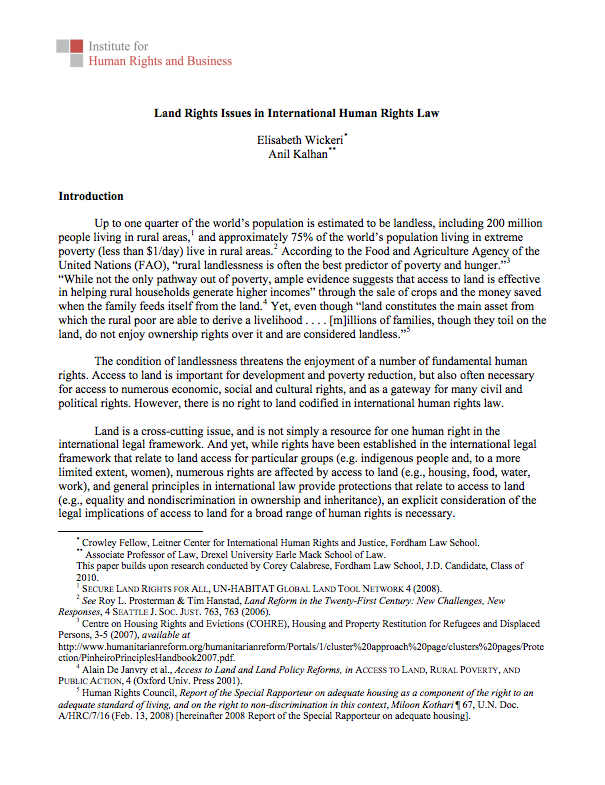Resource information
Up to one quarter of the world’s population is estimated to be landless, including 200 million
people living in rural areas,1
and approximately 75% of the world’s population living in extreme
poverty (less than $1/day) live in rural areas.2
According to the Food and Agriculture Agency of the
United Nations (FAO), “rural landlessness is often the best predictor of poverty and hunger.”3
“While not the only pathway out of poverty, ample evidence suggests that access to land is effective
in helping rural households generate higher incomes” through the sale of crops and the money saved
when the family feeds itself from the land.4
Yet, even though “land constitutes the main asset from
which the rural poor are able to derive a livelihood . . . . [m]illions of families, though they toil on the
land, do not enjoy ownership rights over it and are considered landless.”5
The condition of landlessness threatens the enjoyment of a number of fundamental human
rights. Access to land is important for development and poverty reduction, but also often necessary
for access to numerous economic, social and cultural rights, and as a gateway for many civil and
political rights. However, there is no right to land codified in international human rights law.
Land is a cross-cutting issue, and is not simply a resource for one human right in the
international legal framework. And yet, while rights have been established in the international legal
framework that relate to land access for particular groups (e.g. indigenous people and, to a more
limited extent, women), numerous rights are affected by access to land (e.g., housing, food, water,
work), and general principles in international law provide protections that relate to access to land
(e.g., equality and nondiscrimination in ownership and inheritance), an explicit consideration of the
legal implications of access to land for a broad range of human rights is necessary.


